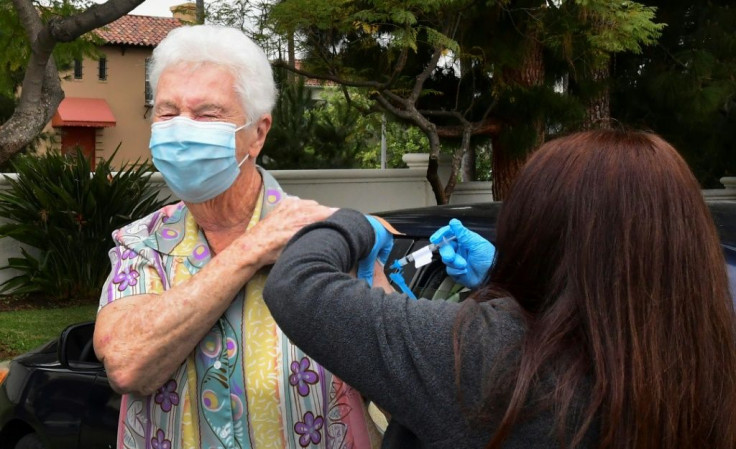Staying Up To Date With COVID-19 Vaccinations Boosts Protection For Nursing Home Residents

Recent research underscored the importance of staying up to date with COVID-19 vaccination among nursing home residents.
Vaccines play a crucial role in preventing severe outcomes associated with COVID-19, and staying up to date with recommended vaccination is essential. Previous data suggested that receiving a bivalent vaccine dose provided additional protection against COVID-19 for individuals who previously received monovalent vaccines. However, limited information existed regarding the effectiveness of up-to-date vaccination status among nursing home residents.
A new study focusing on nursing home residents who remained up to date with COVID-19 vaccinations, primarily through the administration of bivalent vaccines, revealed a vaccine effectiveness of 31.2% against SARS-CoV-2 infection, according to the Centers for Disease Control and Prevention (CDC).
Given the disproportionate impact of the COVID-19 pandemic on nursing home residents due to factors such as age, co-morbidities and living in congregate settings, it is crucial for this vulnerable population to receive adequate protection. The administration of a primary COVID-19 mRNA vaccination series and booster doses has proven effective in reducing COVID-19-related morbidity and mortality among nursing home residents.
Starting in October 2022, the National Healthcare Safety Network (NHSN) defined up-to-date vaccination as the receipt of a bivalent COVID-19 mRNA vaccine dose or completion of a primary series within the preceding two months. However, the effectiveness of being up to date with COVID-19 vaccination in preventing SARS-CoV-2 infection among nursing home residents remained unknown.
To address this knowledge gap, the NHSN analyzed nursing home COVID-19 data reported between Nov. 20, 2022, and Jan. 8, 2023. The study aimed to assess the effectiveness of up-to-date vaccination status, compared to not being up-to-date, in preventing SARS-CoV-2 infection among nursing home residents. After adjusting for various factors, including facility-level staff vaccination rates, the analysis revealed a vaccine effectiveness of 31.2% against infection.
The findings emphasized the importance of nursing home residents staying up to date with recommended age-appropriate COVID-19 vaccinations. This reportedly includes an additional bivalent vaccine dose for moderately or severely immunocompromised adults aged 65 years or older, which further enhances protection against SARS-CoV-2 infection.
The study period was selected to coincide with the incorporation of bivalent vaccines into the definition of up-to-date status, as well as the rise in COVID-19 infections during the winter months. Data collected from CMS-certified nursing homes, which reported both COVID-19 cases and up-to-date vaccination status on a weekly basis, facilitated the authors' analysis.
The NHSN's robust surveillance of vaccination status and SARS-CoV-2 infection among nursing home residents remains critical in evaluating the public health impact of evolving vaccination guidance. To optimize protection against infection and related complications, nursing home residents must stay up to date with COVID-19 vaccines and, if eligible, receive an additional bivalent dose.
Looking ahead, pharmaceutical companies are gearing up to release new COVID-19 vaccines in the fall of 2023. Moderna has already sought authorization from the Food and Drug Administration (FDA) for its new monovalent vaccine, while Pfizer announced the availability of its tailored XBB.1.5 vaccine in July. Details about Novavax's updated version are yet to be revealed.



























